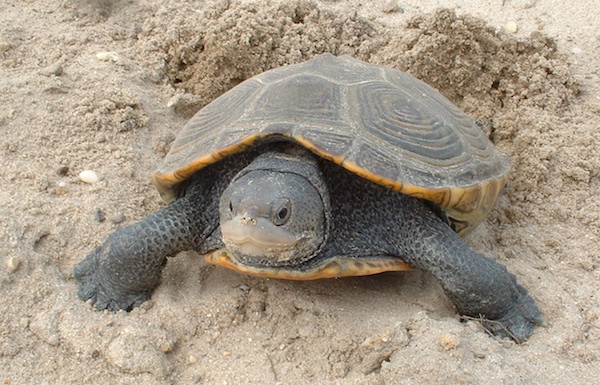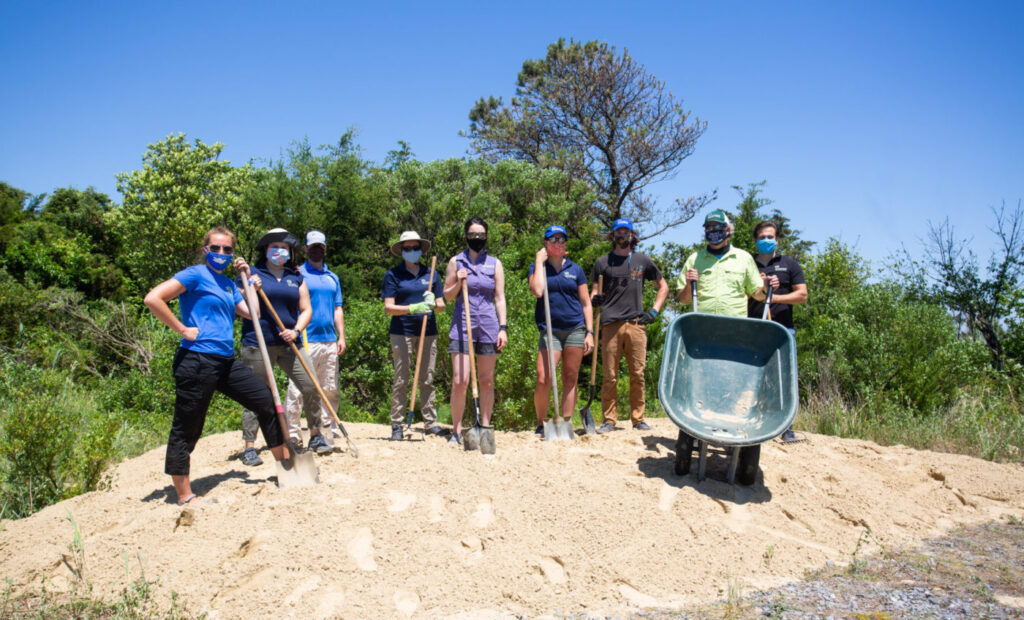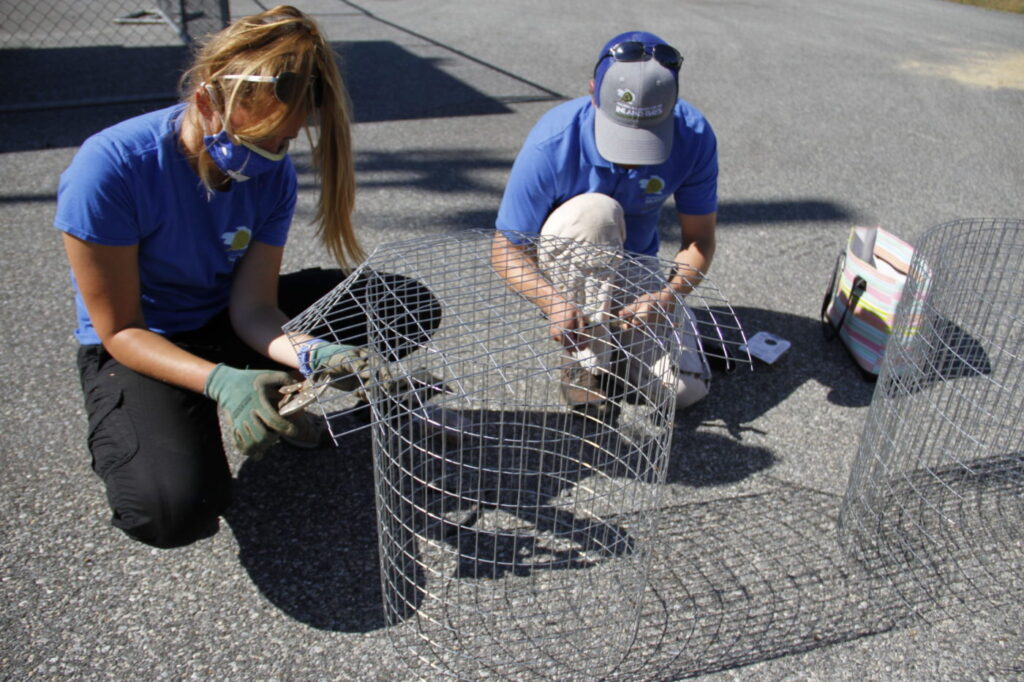In addition to natural predators (e.g., fox, raccoon, and gulls), terrapins face multiple threats linked to human activity – most notably, the loss of prime nesting habitat, collisions with cars and boats, and drowning in fishing gear (crab pots). Coastal development and hardened shoreline stabilization practices have particularly led to a decline in available nesting habitat for terrapins, and sea-level rise is likely to compound the problem. During the months of May – July, females are frequently struck by vehicles while attempting to cross roadways in search of suitable nesting areas. Data collected between Memorial Day and July 4th, 2019 by a Center volunteer reported over 90 terrapin fatalities caused by vehicle strikes on Route 1 between Dewey and Bethany Beach.
Terrapin Gardens
Terrapin Gardens
Diamondback terrapins are the only true estuarine turtle in North America, spending their entire lives in bays, creeks, salt marshes, and coves. They play a key role in helping to maintain balanced and healthy marsh ecosystems by eating salt marsh snails that feed on smooth cordgrass. Though they are considered an aquatic species, terrapins do come ashore between May – July to lay their eggs in soft sand.
In direct response to habitat loss, the Center is constructing a series of terrapin gardens. The purpose of these sandy patches is to provide suitable locations for female terrapins to lay their eggs along the Inland Bays. The gardens will also serve as a unique outdoor interpretive opportunity to increase public understanding of and appreciation for terrapins, and further inspire support for the protection of this iconic species.
This project is funded by the Environmental Protection Agency and private funds from the Diamondback Terrapin Working Group, Pettus Crowe Foundation, and Pegasus Foundation.
Terrapin Garden Construction
When selecting a suitable site for a terrapin garden, a number of factors are considered including proximity to the estuary, distance above the high tide line, vegetation to provide shade and shelter for nesting females and emerging hatchlings, and accessibility to construct and monitor the garden. Future garden site installations will also be dependent upon community participation.
In June 2020, the Center installed a pilot garden located along the Indian River Bay at the Delaware Seashore State Park. An interpretive sign at the site was also later installed. To construct the garden, a mixture of sands and soils (of varying particle sizes with the ability to hold moisture a few centimeters below the surface) was used in order to most closely imitate the natural conditions of terrapin nesting habitat. A total of 22 tons of sand was delivered and evenly spread around the area with approximately two feet of elevation to allow for the females to dig their nest. A gentle slope on all sides was made in an effort to aid easy terrapin access in and out of the garden.
Between June – August 2020, the Center monitored the pilot garden three times per week to document any terrapin nesting and/or predator activity. Visual observations (e.g., animal tracks, dig marks, etc.) were recorded prior to raking the sand in a uniform pattern to help identify any changes to the sand between each monitoring event. While no nests were found during the first year, protective cages were prepared in the event that eggs were laid. The purpose of these cages is to help reduce egg predation while allowing emerged hatchlings to fit through the cage’s holes and make their journey to the water.
Get Involved
Two more gardens will be constructed in spring 2021 (locations to be determined). With support from the community, the Center’s long-term goal is to expand the number of gardens to aid terrapin nesting activity in the Inland Bays while simultaneously providing outdoor interpretive sites that engage the public.
If you have seen terrapins on the roads, parking lots, sidewalks, or other areas of your community or local business, please contact us!
We would be glad to explore whether a terrapin garden installation might work well at your location. For more information, contact Nivette Pérez-Pérez, Project Manager, at nperezperez@inlandbays.org.
Click the image below to read, download, or print our fact sheet to share with your community or local businesses!
For information about another Center terrapin project, click here!



